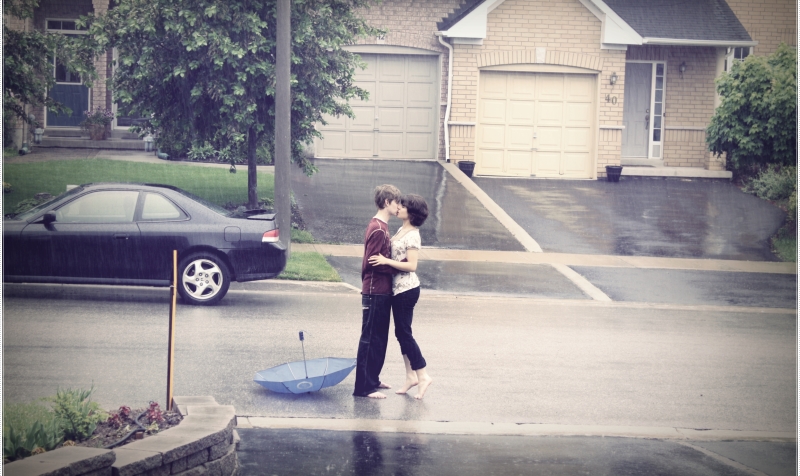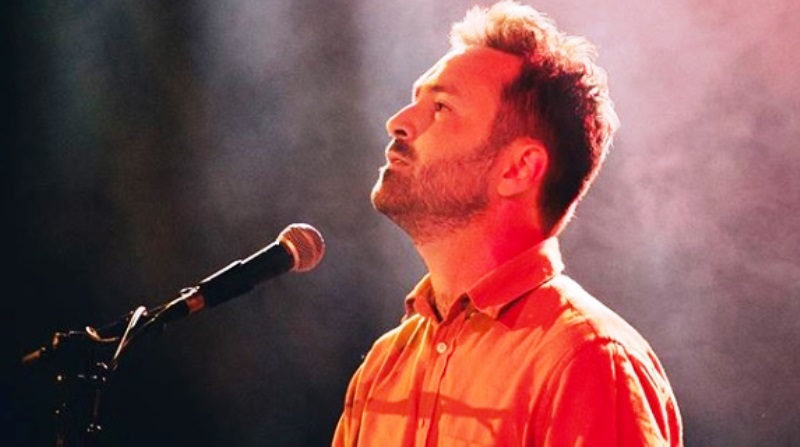Love – the four-letter word means so many different things to different people. It’s also one of the greatest mysteries of life. What is love, if you ask anyone, you’ll get as many different answers as there are people on this planet. Then what about love at first sight? Some hardcore believers say that the instant their eyes clapped on that one special person, they just knew that they were in love. Cue eyeroll from the skeptics!
Suggested read: Science explains why we kiss with our eyes closed
But, according to research conducted by Stephanie Ortigue, Ph.D., who is an assistant professor of psychology at Syracuse University, people can fall in love at first sight. In fact, it can apparently happen in one-fifth of a second!

Image source: Google, copyright-free image under Creative Commons License
When you think of love, you always tend to think that it originates in your heart, but falling in love has more to do with your brain than anything else. Ortigue’s research has thrown light on love and how falling in love is more scientific than you might have imagined.
Talking about whether the heart or the brain falls in love, Ortigue said,
“That’s a tricky question always. I would say the brain, but the heart is also related because the complex concept of love is formed by both bottom-up and top-down processes from the brain to the heart and vice versa. For instance, activation in some parts of the brain can generate stimulations to the heart, butterflies in the stomach. Some symptoms we sometimes feel as a manifestation of the heart may sometimes be coming from the brain.”
Ortigue and her team worked with a team from West Virginia University and a university hospital in Switzerland. The results of this study have been published in the Journal of Sexual Medicine.
Here are a few surprising facts from the research:
1. Love is like a hit of cocaine.

Image source: Google, copyright-free image under Creative Commons License
When you see that special someone and experience that high of being in love, 12 areas of your brain are working in tandem to release ‘euphoria-inducing’ chemicals into your bloodstream. These chemicals include dopamine, oxytocin, adrenaline, and vasopressin. In addition to these chemicals making you feel euphoric and as high as a kite, it also affects sophisticated cognitive functions, such as mental representations, metaphors, and body image. Just like a high from cocaine won’t last long, this euphoric feeling isn’t long-lasting, explain experts. Hence, the initial ‘passionate love’ either dies a quick death or turns into ‘companionate love,’ which is what is seen in couples who’ve been married for many years.
2. Different parts of your brain are affected by different types of love.
While passionate love activates the part of the brain which rewards and motivates you, unconditional love that exists between a mother and her child doesn’t activate this region of the brain. Many people interconnect romantic love and sexual desire, but research shows that both of these involve different parts of the nervous system. While romantic love is controlled by endorphins, dopamine, and oxytocin, sexual desire is governed by estrogen and steroid hormones.
3. Love truly can make you overcome every obstacle you might encounter.

Image source: Pixabay, under Creative Commons License
Love makes the world go round, but did you know that love does actually help you overcome any obstacle you might encounter on your way? Since love is linked to the part of the brain that is associated with rewards, researchers explain that if people weren’t motivated to work through their relationship problems, then everyone would bail at the first sign of trouble, and this would be very bad for the survival of the species.
4. Passionate love doesn’t just have physical effects, but emotional as well.
When you’re in love, you experience a racing heart and butterflies in your tummy. These are common symptoms of being in love. However, these are the effects of adrenaline sending signals to your heart and stomach, while your brain is lovestruck. In fact, when love is new and passionate, it could even act as a natural painkiller on your body, essentially distracting your brain from the pain.
Suggested read: Science lays out the biggest relationship deal breakers
5. Love can reduce fear, anxiety and sadness.
Love can reduce activity in parts of the brain associated with negative emotions such as fear, anxiety, and sadness. In fact, hugs, kisses, cuddles and the like release oxytocin into your bloodstream, which is a natural mood-boosting chemical. This explains why you feel like you can take on the world when you’re in love.
Although this research suggests that falling in love takes one-fifth of a second, it takes a boatload more than that to grow and sustain a healthy relationship. You just need to put in the required effort and have the will to make it work. Good luck!
Featured image source: Pixabay, under Creative Commons License













